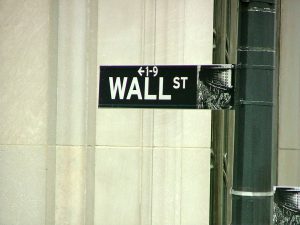Human Nature As A Cause
Aug 22, 2016 ~ Written by: W.B. “Bud” Kirchner
“The real measure of your wealth is how much you’d be worth if you lost all your money.” – Author Unknown
 I trust the preceding blog (Financialization As A Symptom) did an adequate job of illustrating – we have a problem(s).
I trust the preceding blog (Financialization As A Symptom) did an adequate job of illustrating – we have a problem(s).
Accept what you will of the diametrically opposed world of the two groups “Makers and Takers” but it is clear that there are some bad actors out there and they are counterproductive to what is reasonable within the context of what we have describe as “earning and returning”.
As always – I will track this back to aspects of the Business Brain Model – in other words what is there in neuroscience and/or psychology to explain the behavior that exploits people and situations for (outrageous) personal (short term) gain, at the expense of others. The literature is replete so as usual I will give you a cross section to whet your appetite and point you in the right direction.
You have to be impressed by someone who has mastered the world of a quant and is still interested in behavior. Andrew W. Lo in “Fear, Greed, and Crisis Management: A Neuroscientific Perspective” succinctly describes the context”:
- Monetary gain stimulates the same reward circuitry as cocaine — in both cases, dopamine is released into the nucleus accumbens.
- Similarly, the threat of financial loss activates the same fight-or-flight circuitry as physical attacks, releasing adrenaline and cortisol into the bloodstream, which results in elevated heart rate, blood pressure, and alertness.
- Gains are ultimately unsustainable, and once the losses start mounting, our fear circuitry kicks in and panic ensues, a flight-to-safety leading to a market crash.
All of these aspects are what John Maynard Keynes described as “animal spirits” and has arguably led to: 17 banking-related national crises around the globe since 1974, the majority of which were preceded by periods of rising real-estate and stock prices, large capital inflows, and financial liberalization.
Second on my list is Ian Robertson (Bankers and the neuroscience of greed) who I have had the pleasure of meeting in person and I must say I was impressed by how seriously he takes this stuff. Here are a few of his insights:
- Holding power changes brains by boosting testosterone, which in turn increases the chemical messenger dopamine in the brain’s reward systems.
- In too-large doses it can make them egocentric and un-empathic, greedy for rewards – financial, sexual, interpersonal, material.
- It is a feature of these mental modes that even remembering events or facts which run counter to the prevailing mood is hard – hence depressed
I also remind you of my blog (An Exercise in Risky Business) from a couple years ago which focused on the work of John Coates (“The Hour Between Dog and Wolf: Risk Taking, Gut Feelings and the Biology of Boom and Bust”).
In summary, John (who is also an acquaintance) documented the complications as related to hormones:
“Remember, this is “fight or flight” we are talking about so we are talking a quick decision and quick impact – we are not designed to handle biochemical disturbances on a long-term basis. Basically, we are built to “turn on” for a couple minutes or couple hours (couple days at most) and then “turn off.” Our caveman body (and mind) is purposed for fighting – or running from – a tiger rather than the Wolf of Wall Street. The nature we are intended for is actual nature, not the nature of business.”
While we have touched on (in a couple places) our fight or flight response – largely originating from the amygdala, the poignant issue with John is that the body goes into this same state (often counterproductively) when you are NOT in a life or death struggle. His book illustrates the biological and emotional reaction to the world of business – specifically financial risk. Sadly, economists tend to view the analysis of financial risk as a strictly cerebral business.
 And finally (I stop now or go on forever) with “How Greed Works” – Vikram Sheel Kumar who sets his work in the context of the basis of free market economies per Jon Stuart Mill and Milton Friedman who believed markets are driven by rational and predictable actors.
And finally (I stop now or go on forever) with “How Greed Works” – Vikram Sheel Kumar who sets his work in the context of the basis of free market economies per Jon Stuart Mill and Milton Friedman who believed markets are driven by rational and predictable actors.
The author tests his ideas via the ultimatum game (I recently referenced the ultimatum game in another blog (Daniel Kahneman Meets Dalai Lama).
- In the ultimatum game, it is injustice that faces off with greed.
- However, greed drives you to value immediate benefits to an extent that you ignore potential future costs. A Harvard economist, David Laibson, has coined the term “hyperbolic discounting”.
- The timing of the reward, notions of injustice, and apathy that sets in when the race is over work to influence greedy behaviors.
He inserts a somewhat positive note: “It (greed) can be trumped by other emotions such as injustice that was observed in Cohen’s study. This gives us hope.”
“If you want to know what God thinks of money, just look at the people he gave it to.” – Dorothy Parker
About the Author: W.B. “Bud” Kirchner is a serial entrepreneur and philanthropist with more than 50 years of business success. He is not a scientist or an academic but he does have a diversified exposure to neuroscience, psychology and related cognitive sciences. Generally speaking, the ideas he expresses here are business-angled expansions of other people’s ideas, so when possible, he will link to the original reference.
